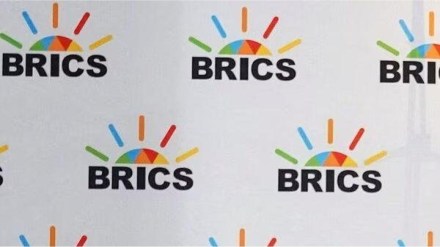As the BRICS group (Brazil, Russia, India, China, and South Africa) —continues to expand and strengthen its influence, the Western world, particularly the G-7 nations, is beginning to feel a growing sense of unease. This shift in global power dynamics reflects the deepening geopolitical rift between the developed and developing worlds. BRICS is no longer just an economic alliance; it is increasingly seen as a counterbalance to the Western-dominated G-7, causing nervousness in Europe and North America.
BRICS: A response to G-7 exclusivity
India’s Foreign Minister, S Jaishankar, has recently articulated the rising tensions between the West and BRICS. During a visit to Europe, he highlighted that the formation of BRICS was a response to the exclusive nature of the G-7. Jaishankar pointed out that while the G-7 represents the interests of developed nations, it has not been open to including emerging economies like India, China, or Brazil. As a result, these nations, along with Russia and South Africa, felt compelled to establish BRICS in 2006 as a platform for their voices and interests to be represented on the global stage.
Jaishankar’s comments underline the growing sense that BRICS is a necessary counterweight to the G-7. When asked why BRICS is needed when global forums like the G-20 already exist, Jaishankar responded with a pointed rhetorical question: “When there is a G-7, why not BRICS?” This statement captures the frustration of many developing nations with the perceived arrogance of the West in excluding them from key global discussions.
BRICS expansion and its global implications
In recent years, BRICS has taken significant steps to expand its membership, further amplifying the nervousness in Western capitals. Countries such as Iran, Egypt, Ethiopia, and the United Arab Emirates have joined the BRICS bloc, while Turkey, a NATO member, has applied for membership. The inclusion of Turkey, a traditional Western ally, signals a potential shift in global alliances and is particularly alarming for Europe and the United States. The fact that Turkey, a key NATO member, is seeking to join a group that is increasingly seen as a rival to the G-7 is a clear indicator of the changing global order.
Additionally, around two dozen other nations, including Malaysia and Saudi Arabia, have expressed interest in joining BRICS. This expansion highlights BRICS’ growing appeal to countries that are dissatisfied with the existing Western-dominated global order. For many developing nations, BRICS represents a platform where their interests are given greater consideration, contrasting with the G-7’s focus on the developed world.
Multipolarity vs. Unipolarity: A clash of visions
At the heart of the growing rivalry between BRICS and the G-7 is a fundamental difference in worldview. The BRICS nations, led by China and Russia, advocate for a multipolar world where power is distributed more evenly across various regions and countries. This contrasts sharply with the unipolar vision championed by the West, particularly the United States, where global governance is largely dictated by a few powerful nations.
Maria Zakharova, a spokesperson for the Russian Foreign Ministry, underscored this ideological divide at the BRICS Media Summit in Moscow last week. Zakharova emphasized that BRICS is not about creating new divisions based on bloc mentality. Instead, BRICS promotes “synergy of different civilizations” and seeks to foster a collective approach to solving global issues. The BRICS philosophy, as described by Zakharova, is rooted in equality, openness, and respect for the development paths chosen by individual states. This stands in stark contrast to the G-7’s approach, which is often criticized for its imposition of Western values and norms on other countries.
Western reactions and concerns
The rapid expansion of BRICS and its increasing influence in global affairs has raised alarm bells in the West. The inclusion of countries like Iran and Egypt, which have traditionally been at odds with Western powers, further solidifies BRICS’ position as a geopolitical challenger. The G-7, which once included Russia before expelling it in 2014 over the annexation of Crimea, now faces a BRICS bloc that not only includes Russia but also nations that are either critical of Western policies or are shifting their allegiances.
The West’s concerns are not only geopolitical but also economic. BRICS nations collectively represent a significant portion of the world’s population and GDP. As the group continues to grow, it could potentially form an economic bloc that challenges the dominance of Western financial institutions like the International Monetary Fund (IMF) and the World Bank. The possibility of BRICS nations trading in their own currencies, bypassing the US dollar, is a scenario that could have far-reaching consequences for the global financial system.
A new global order?
The growing strength of BRICS and its expanding membership is a clear sign that the global balance of power is shifting. As more countries seek to align themselves with BRICS, the traditional dominance of the G-7 and Western-led institutions is being challenged. The nervousness in the West is palpable as BRICS emerges as a formidable force on the world stage. Whether this will lead to a more multipolar world or further entrench existing divisions remains to be seen. However, one thing is clear: BRICS is no longer just an economic alliance, but a geopolitical force that the West can no longer afford to ignore.
